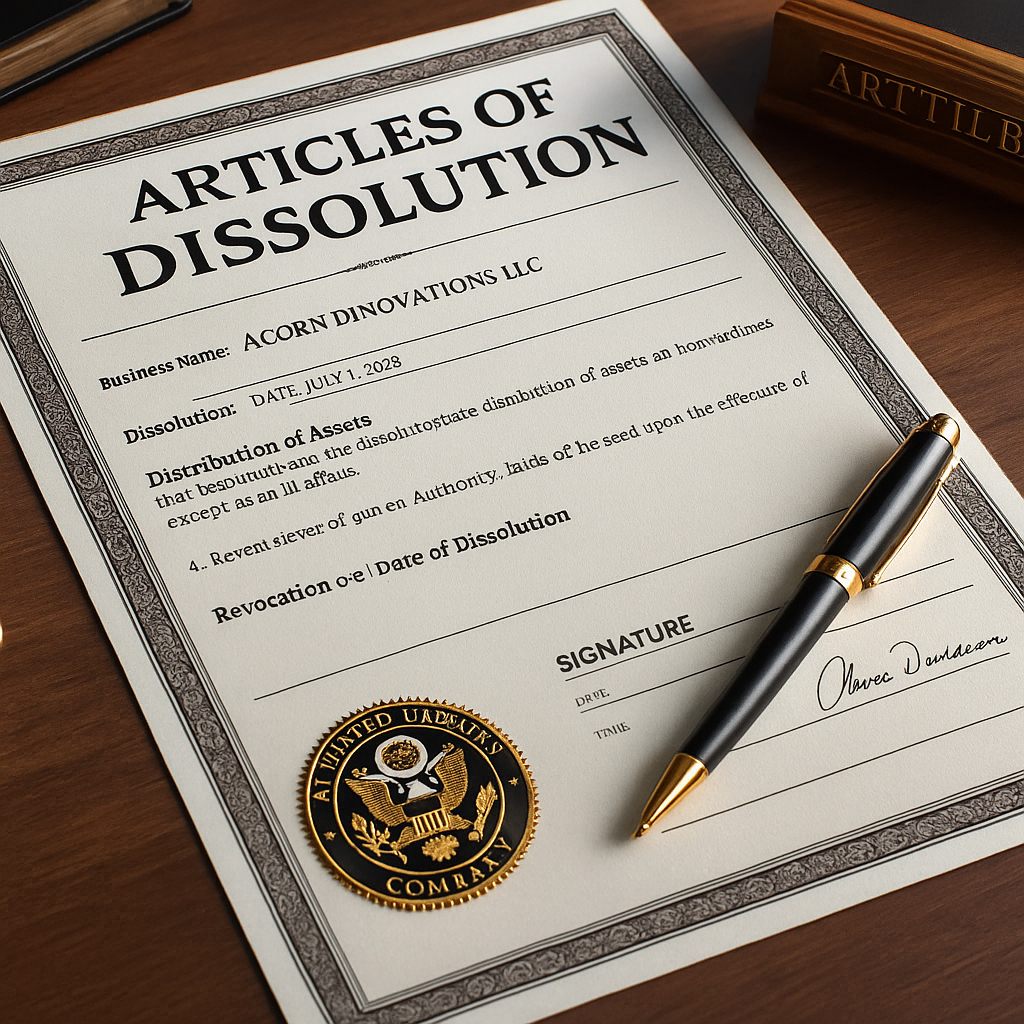Frequently Asked Questions About Dissolving an LLC
What Is an LLC Dissolution?
Running a business comes with changes—some exciting, and others more final. One such moment is when a business owner decides to close their LLC. It’s not just locking the door or deactivating a website—there’s an official process involved. This process is called LLC Dissolution.
Imagine you’ve registered your business, worked on it for a while, and then circumstances change. Maybe you're starting a new venture, relocating, or the business just isn’t working out. In these cases, you can’t just walk away—especially if your company is registered with the state. This is where dissolution of a limited liability company comes in.
So, What Exactly Is LLC Dissolution?
LLC dissolution is the legal process of officially closing or ending a Limited Liability Company with the state government. It means your business is no longer active in the state’s records and is not responsible for state fees, annual reports, or taxes moving forward.
To dissolve an LLC, you need to follow your state’s legal process. This usually includes filing an Articles of Dissolution LLC form and ensuring that all taxes and obligations are settled. Once approved, your business is considered legally closed.
Common Terms People Use
Many people use different phrases when talking about closing their business, like:
Cancel LLC
Dissolve my LLC
Terminate an LLC
LLC Termination
How to close an LLC
They all mean something similar, but the official term, especially in legal and state documents, is usually LLC Dissolution.
What Are Articles of Dissolution?
Articles of Dissolution is a legal document that you submit to your state government when you decide to dissolve your LLC or corporation. Filing this form lets the state know that your business is no longer active, and you won’t be responsible for any future filings, taxes, or fees.
In short, it officially ends the life of your business in the eyes of the law.
LLC Dissolution vs. Termination vs. Cancellation
Imagine you decide to close your LLC. You stop doing business, let your customers know, and maybe even sell off your assets. That’s part of what we call dissolution.
But even after all that, the LLC technically still exists on paper until you complete the final step — the termination.
LLC dissolution is the first formal step when you decide to end your business. It involves:
Voting to dissolve (if you have partners)
Filing Articles of Dissolution
Notifying creditors
Paying debts
Distributing remaining assets
You're basically wrapping up the business’s affairs in a clean and legal way.
LLC Termination
Termination comes after dissolution. It’s the final move that legally removes your LLC from the state’s registry.
Once your LLC is terminated, it’s completely done:
No state filings
No taxes
No operations
No legal ties
Think of dissolution as closing the shop, and termination as turning off the lights and locking the door for good.
How Much Does It Cost to Dissolve an LLC?
The primary expense is the filing fee for your Articles of Dissolution LLC. This fee varies by state, typically ranging from $40 to $200.
Additional Costs to Consider
Tax Clearance Certificates- Some states (e.g., New Jersey, Illinois) require proof you’ve paid all state taxes before accepting your dissolution. Fees for tax clearance can be $10–$50.
Expedited Processing - If you need your dissolution approved quickly, you can pay an extra $25–$100 for rush filing.
Attorney or Service Provider Fees - DIY is cheapest, but professional help (like Buykii) often charges a flat service fee—usually $49–$149 on top of state fees—for handling everything for you.




